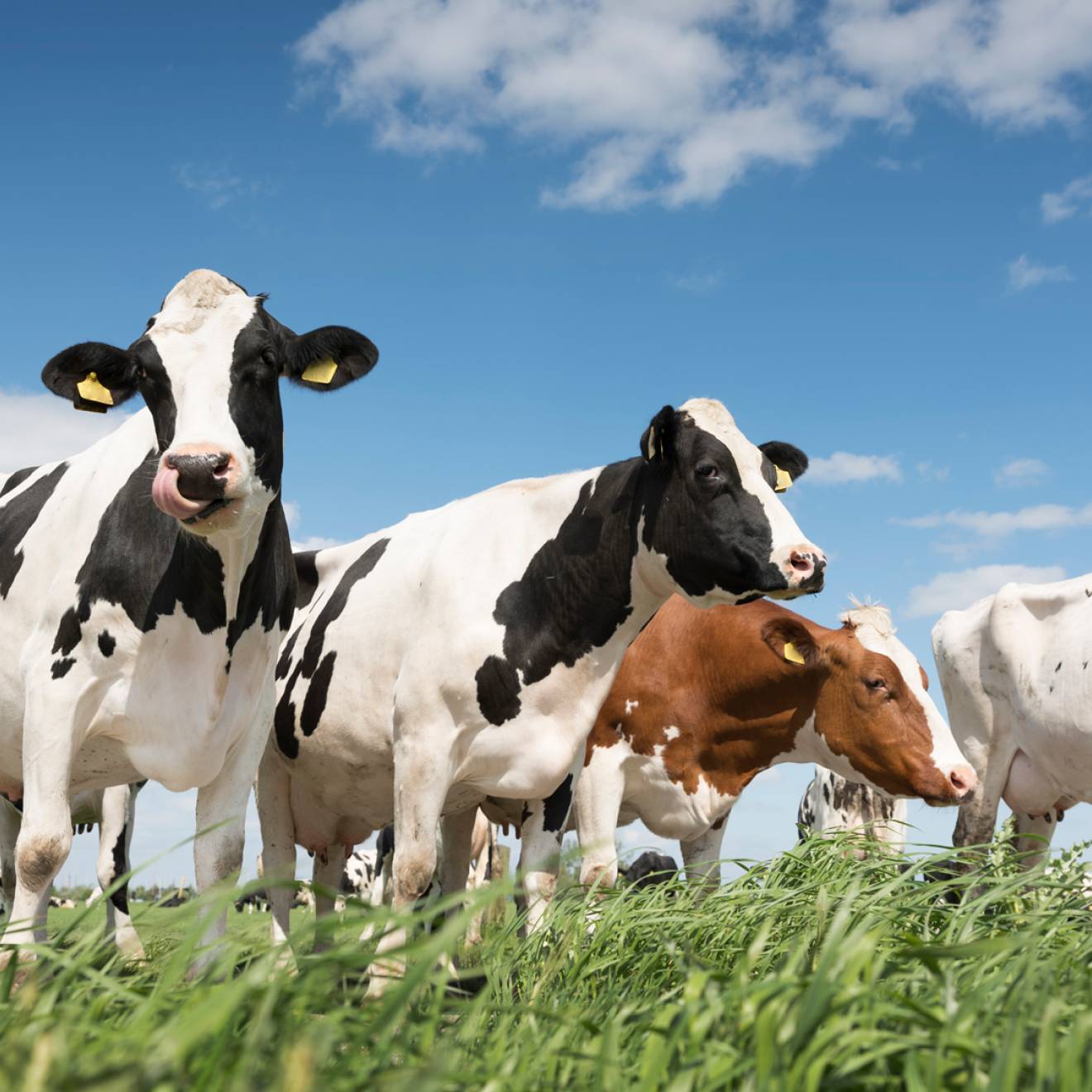Alec Rosenberg, UC Newsroom
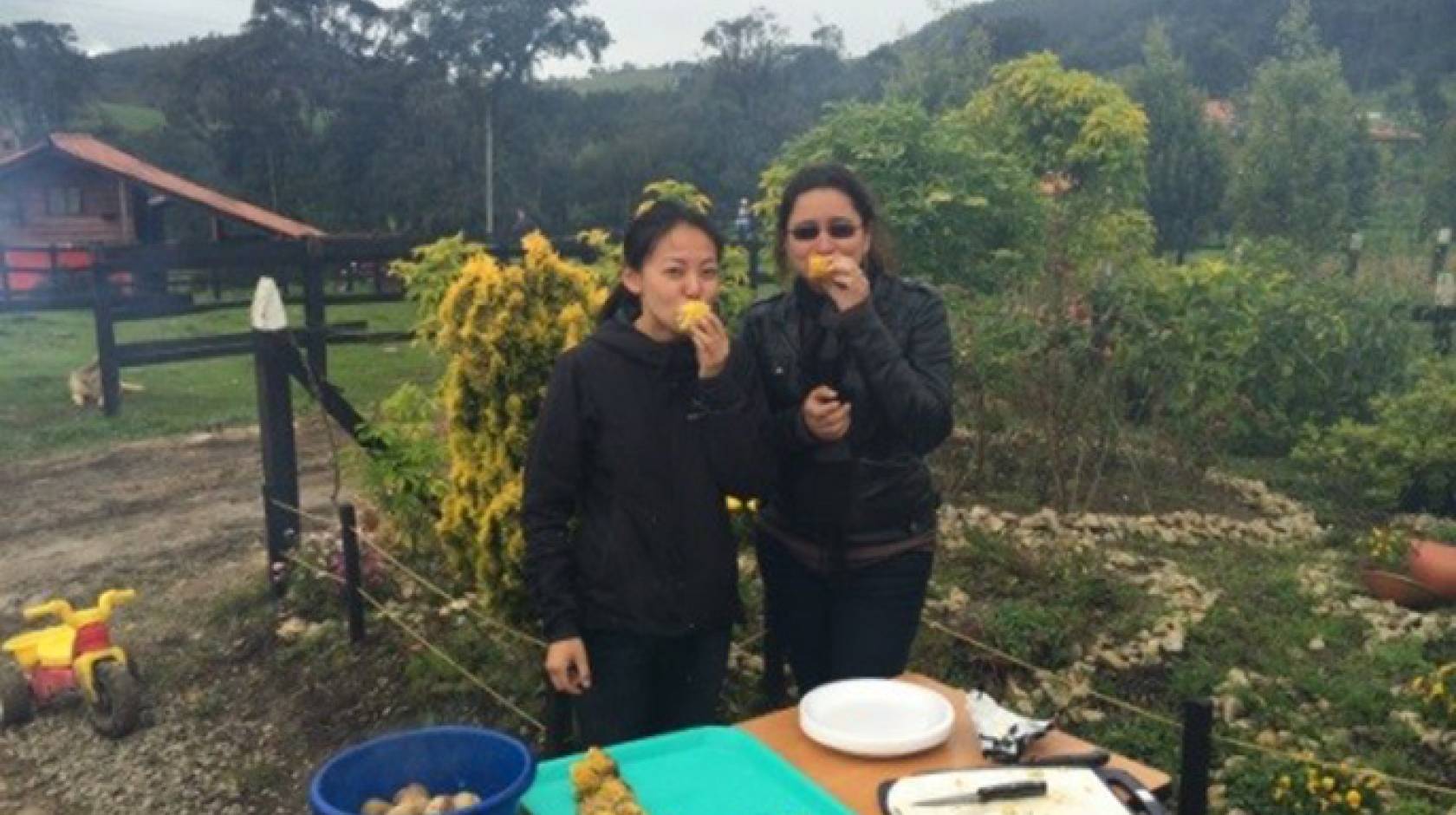
Jonathan Yates knew he wanted to work in the developing world after volunteering on projects in the Philippines as a teenager and seeing shocking levels of poverty.
Yates, who grew up in Taiwan, nurtured his passion for international development while serving an internship in Kosovo and participating in an agricultural training academy in South Africa.
All of that experience is building towards a career-shaping opportunity: Yates and his wife, Kaitlyn Le Baudour – both international agricultural development graduate students at UC Davis – will be traveling together to Nepal to help Himalayan farmers recover from last year’s devastating earthquake.
Yates and Le Baudour are among approximately 40 graduate students from four University of California campuses – Berkeley, Davis, Riverside and Santa Cruz – selected for U.S. Agency for International Development fellowships co-sponsored by the UC Global Food Initiative.
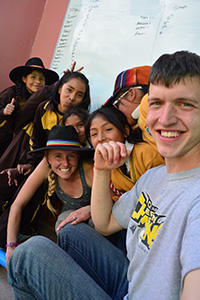
Graduate student fellows will spend two to six months helping partner organizations solve scientific, technological, organizational and business challenges. USAID’s Global Development Lab launched the program a year ago with six universities, including UC Berkeley and UC Davis. The UC Global Food Initiative is co-sponsoring fellowships to help expand the program at UC Berkeley and to help UC Davis to extend its program to include fellowships at UC Riverside and UC Santa Cruz.
“I’ve never been to South Asia before,” Yates said. “I’m excited to get to know a new culture, meet new people and get the opportunity to contribute to Nepal’s recovery from the earthquake. It almost seems too good to be true.”
That his wife received a fellowship to work on the same project makes it even better, he said.
Taking an active role in international development
The earthquake took a heavy toll on Nepal’s agricultural sector. Yates, Le Baudour and two other UC fellows will be partnering with host institution Aythos, an economic development nonprofit working in Nepal, to help farmers receive organic agriculture training, harvest fruit trees and identify new crops to diversify their operations and provide income for their families.
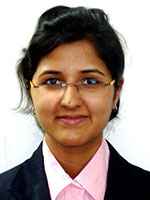
UC-USAID fellows will participate in projects in 20 countries on four continents. The UC Davis, UC Riverside and UC Santa Cruz fellows focus on agriculture and natural resources as part of the Research and Innovation Fellowship for Agriculture program. UC Berkeley fellows cover a broad array of international development areas as part of the Global Development Fellows program.
Fellow Meena Aier, a UC Berkeley graduate student in public policy, will travel to Vietnam, Indonesia and possibly Bangladesh, India and Mozambique to work with host institution NextBillion on a project with a technological twist. The Mobile Movies project employs local agents to collect data, screen entertainment and educational films, and introduce beneficial health- and agricultural-related products to rural communities.
Aier, who has worked in her native India on mobile payments and expanding financial access for the agricultural sector, is interested in seeing how Mobile Movies works and what lessons can be learned about delivering solutions to low-income populations.
“I did not want to be stuck on a desk punching numbers,” Aier said. “I wanted to branch out and look at how old-school technologies can be used in different ways.”
Science with a social impact
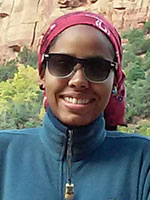
UC Riverside Ph.D. candidate Eleinis Avila-Lovera will return to her native Venezuela to resume work with the Universidad Central de Venezuela on cultivating cacao in an agroforestry system. Her project aims to increase incomes for local farmers and diversify their operations by encouraging them to grow a less common but higher quality cacao variety, Criollo, along with growing timber for wood, a mix that also can help maintain native plants and animals.
“You can see that the science you’re doing matters and can help people,” Avila-Lovera said. “We hope to help local farmers make decisions on plants they need to grow depending on the conditions of their farm.”
Stephanie Webb, a UC Santa Cruz Ph.D. candidate in environmental studies, is looking to build on her domestic experience in seafood, which includes co-founding the first community-supported fishery in Oregon. She will travel to Egypt this summer to work with host institution WorldFish, which seeks to reduce poverty and hunger by improving fisheries and aquaculture.
“This fellowship is a really great opportunity from not only an academic standpoint but also from a career standpoint,” Webb said.
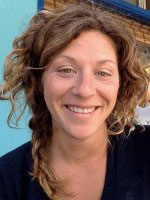
The UC-USAID fellows will gather for a conference Jan. 30 at UC Berkeley. One of the speakers will be 2015 fellow Meiling Gao of UC Berkeley, who spent three months in Colombia assessing the environmental impacts of intensified agriculture in grasslands north of the Amazon basin.
Gao, now a postdoctoral fellow at the Berkeley Energy and Climate Institute after completing her doctorate in public health, said she hopes to return to Colombia to do more work there.
“I had a great time,” Gao said. “I definitely recommend it. There’s a lot of opportunity for cultural exchange and academic exchange as well.”
The 2016 UC-USAID fellows, with their country, project and host institution, include:
UC Berkeley
- Maxwell Aaronson, South Africa, creating mobile and Web applications to improve literacy training, Reach Trust
- Meena Aier, Vietnam/Indonesia, work on Mobile Movies and research ways to deliver messages related to nutrition, sanitation and food production techniques, NextBillion
- Ranchithaa Anatory, India, improving insurance products for crop and agricultural property, Harit Solutions
- Daniel Blaustein-Rejto, Vietnam, climate-smart agriculture and developing climate-crop models, International Center for Tropical Agriculture (CIAT) Asia
- Paloma Corcuera, Tanzania, improving vegetable value chains, AVRDC – The World Vegetable Center
- Sabhanaz Rashid Diya, South Africa, evaluating a program that converts used computer rooms in rural schools into after-school educational game arcades, Learning Innovation Design Lab
- Samantha Hamilton, Vietnam, sustainable agri-food systems, climate-smart agriculture and integrated crop-livestock system, CIAT Asia
- Lauren Jacobson, South Africa, study and improve the female condom program, MatCH Research, University of Witwatersrand
- Sara Litke, Kenya, develop program evaluation pilot, set up monitoring and evaluation framework, and advise on evaluation pilot scale up, Development in Gardening
- Anna Brogan Mann, Nepal, Himalayan Farmers: The Key to Recovery in Nepal, Aythos
- Maria Kei Oldiges, Brazil, research emergence of mechanisms for the payment for environmental services and focus on reduced emissions from deforestation, Federal University of Minas Gerais
- Natalie Oman, South Africa, mental health needs and services for HIV patients, University of Capetown
- Tarunima Prabhakar, Indonesia, expanding access to clean energy in rural areas, Kopernik
- Hortencia Rodriguez, South Africa, study and improve the female condom program, MatCH Research, University of Witwatersrand
- Cameron Scherer, South Africa, providing survivors of domestic abuse and sexual assault with access to designated counselors and peer survivors, Reach Trust
- Chimi Dolkar Sherpa, India, research social and economic impact of employability education for young women in India, Medha
- Cameron Smith, South Africa, implement delivery of energy services to off-grid villages and analyze the project, Standard Microgrid
- Ana Sofia Tamborrel, Costa Rica, work to improve statistical model of farm crop preferences and food security, Bioversity International
- Rachel Young, South Africa, examine national sustainability policies on local level and analyze their effects, University of Pretoria
UC Davis
- Sarah Adcock, Sri Lanka, developing an on-farm welfare assessment tool for dairy cattle, University of Peradeniya
- Rodrigo Bonilla, Mexico, supporting organics in Mexico, Oregon Tilth
- Alyssa DeVincentis, Colombia, environmental impacts of land use change and intensive agriculture in the Colombian Orinoco basin, Universidad Nacional de Colombia
- Elizabeth Hohenberger, Zambia, research on women’s empowerment and participation in farmer groups and savings and internal lending communities, Catholic Relief Services
- Hanyuan Jiang, Philippines/Japan, Ifugao Satoyama Meister Training Program for the preservation of traditional rice paddy terraces as agricultural heritage, Ifugao State University
- Kaitlyn Le Baudour, Nepal, Himalayan Farmers: The Key to Recovery in Nepal (organic production and soil evaluation), Aythos
- Austin Peterson, Liberia, empowering and investing in Liberia's rural women farmers, The Bridges Institute
- Katherine Polakiewicz, Honduras, value chain mapping analysis for the Blue Harvest program, Catholic Relief Services
- Leah Puro, Vietnam, integrated agricultural technologies for enhancing adaptive capacity and resilient livelihoods in climate-smart villages of Southeast Asia, CIAT
- Laura Reynolds, Nepal, Himalayan Farmers: The Key to Recovery in Nepal (everything), Aythos
- Jamey Smith, Vietnam, boosting eco-efficiency on smallholder livestock-crop systems, CIAT
- Tsz Wai (Sammi) Wong, Vietnam, soil health and pest suppression in Southeast Asian agrolandscapes, CIAT
- Michael Wallace, Kenya, value addition marketing moringa and roselle for nutrition, Development in Gardening
- Katherine Wilkins, Vietnam, food resilience in upland and coastal communities of the Asia Pacific, CIAT
- Jonathan Yates, Nepal, Himalayan Farmers: The Key to Recovery in Nepal (new crop development), Aythos
UC Riverside
- Eleinis Avila-Lovera, Venezuela, cultivating cacao in an agroforestry system, Universidad Central de Venezuela
- Pedro Piqueras, South Africa, characterizing aerosol emissions and their impacts on agriculture in South Africa, Council for Scientific and Industrial Research (CSIR) Natural Resources and the Environment
UC Santa Cruz
- Jennifer Kregear, Vietnam, understanding gaps in food resilience between rural and urban consumers, CIAT
- Stephanie Webb, Egypt, understanding aquatic agricultural systems and nutrition and health to enhance food security, WorldFish
